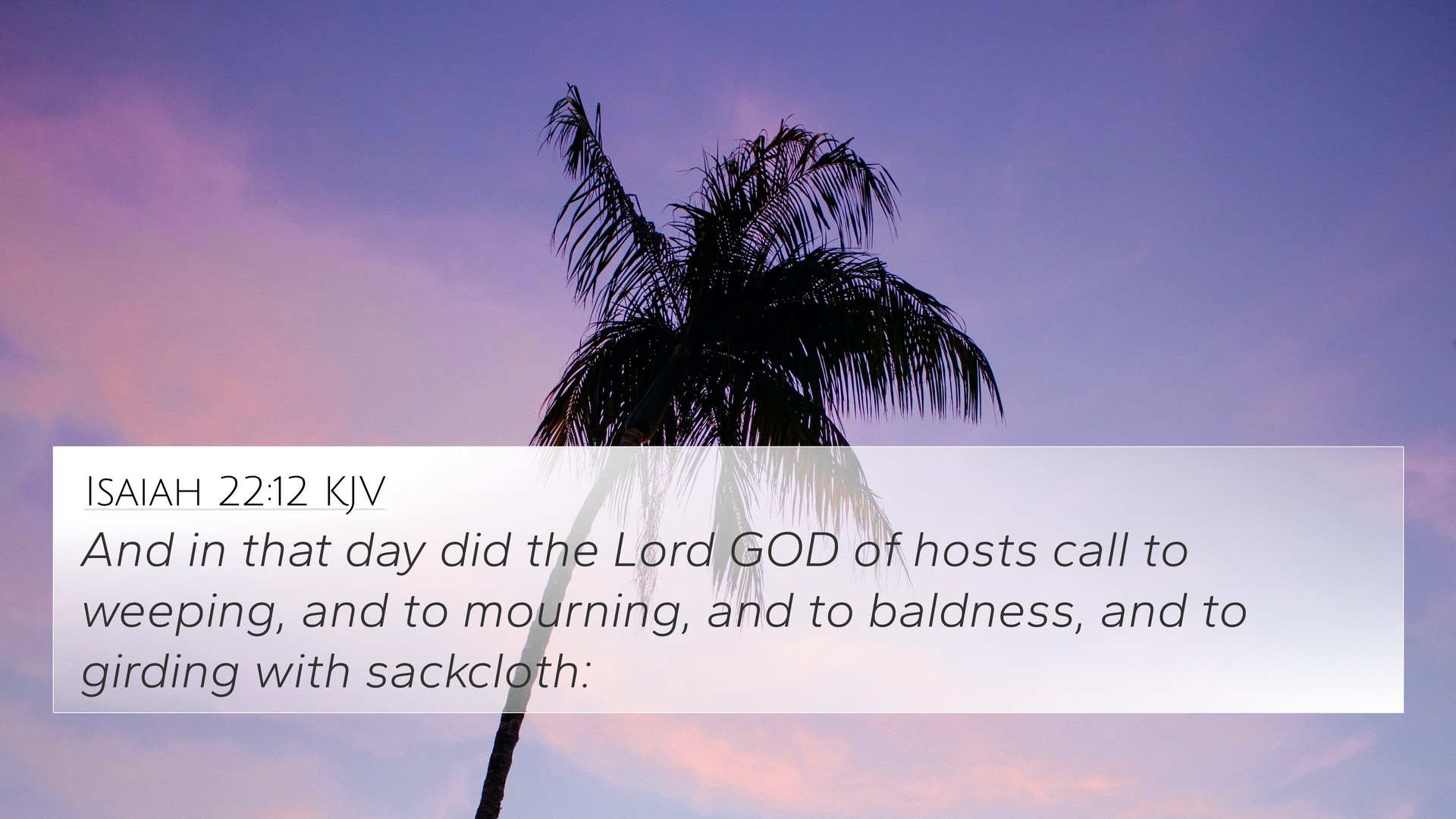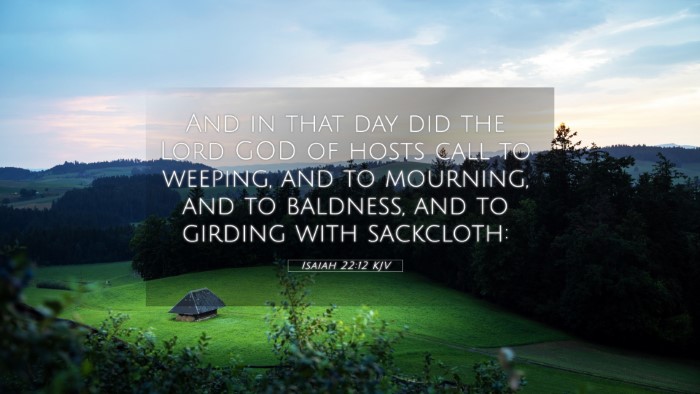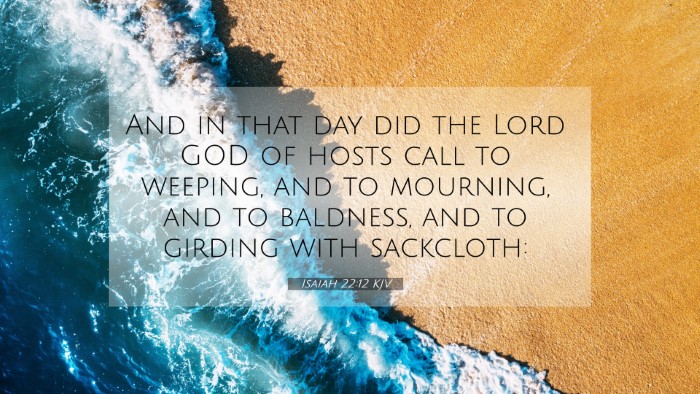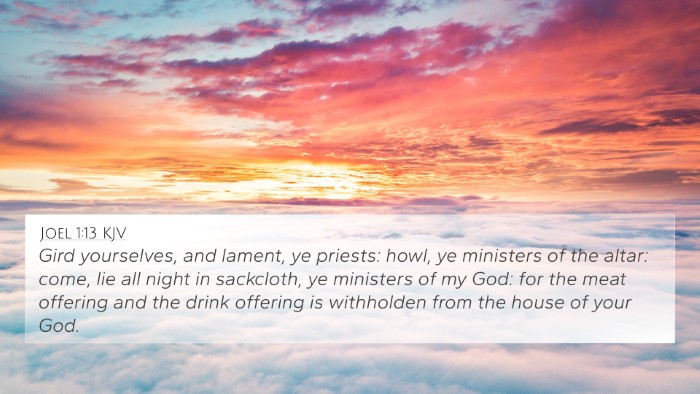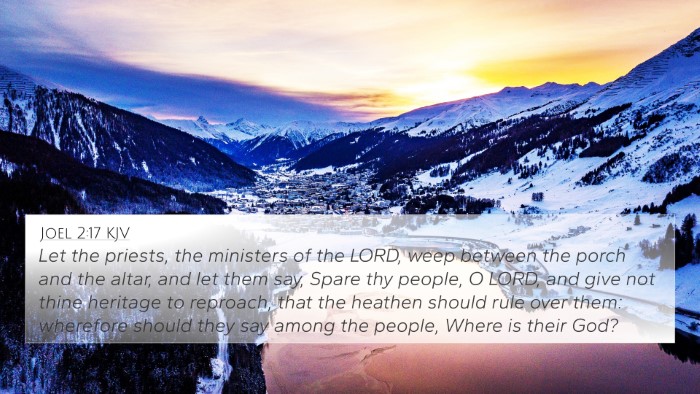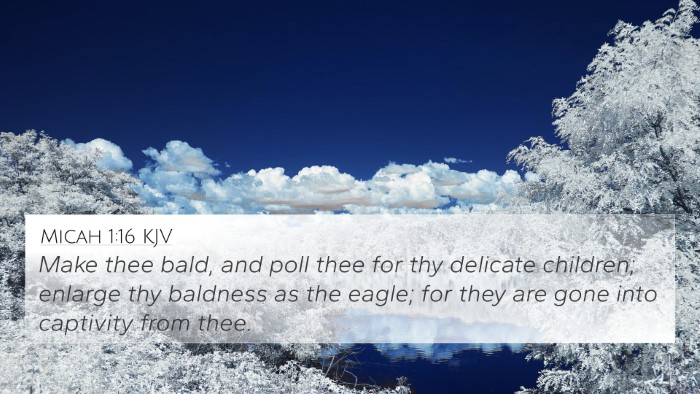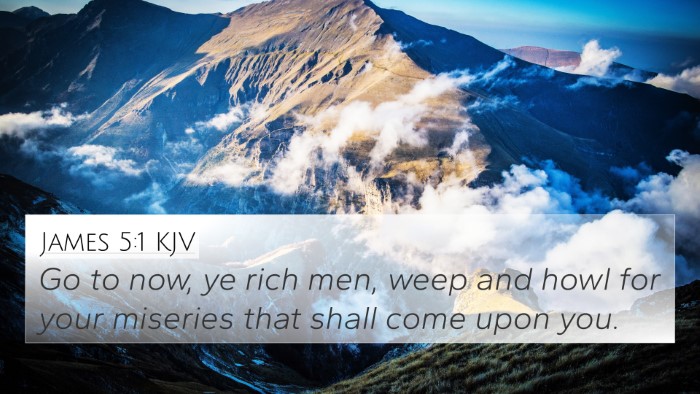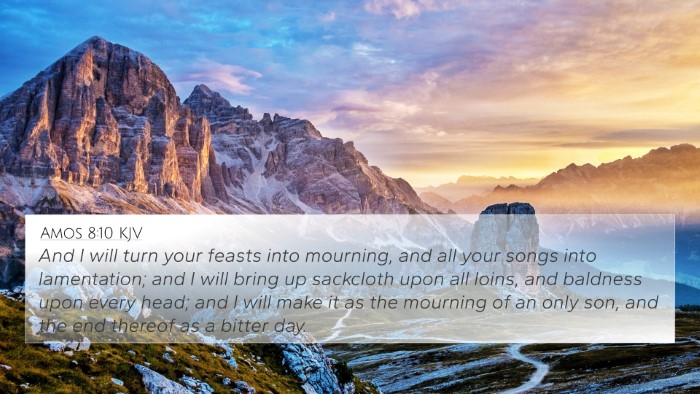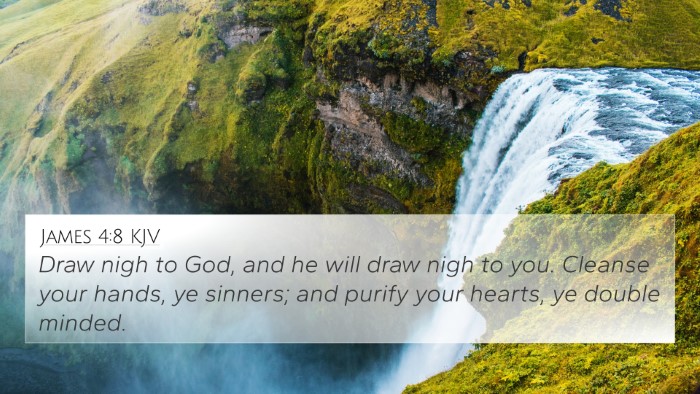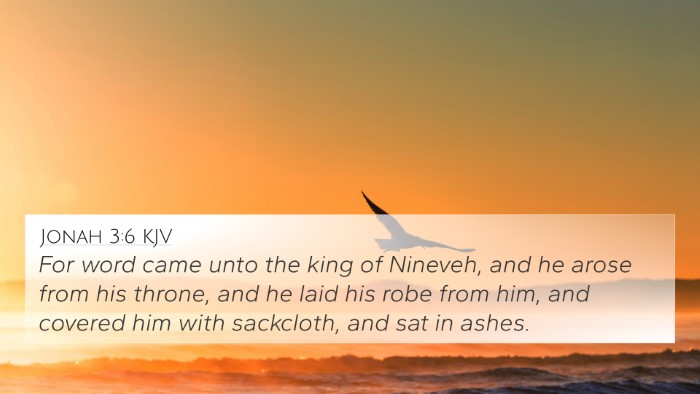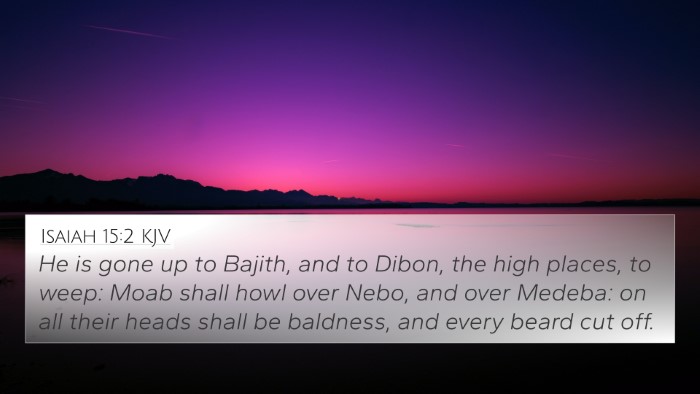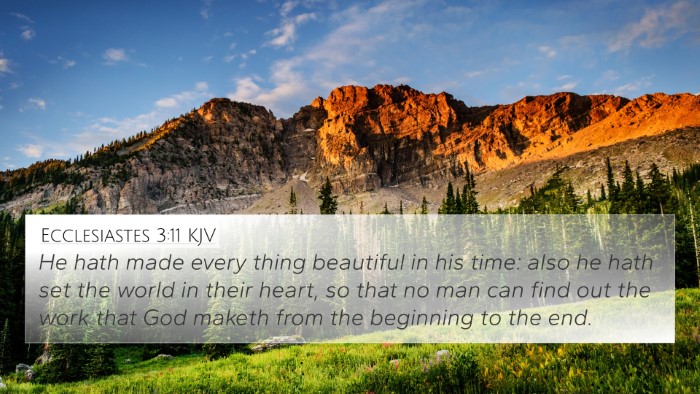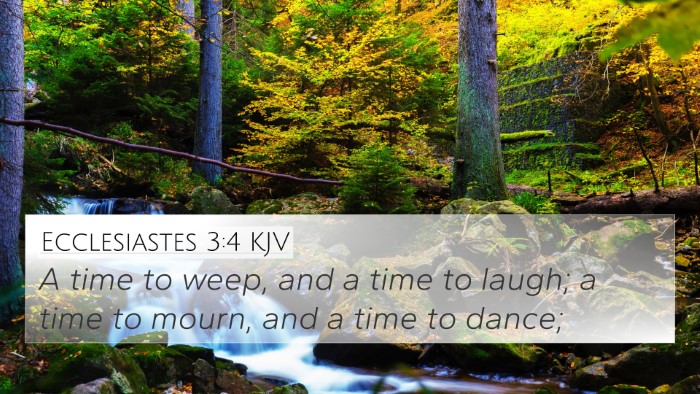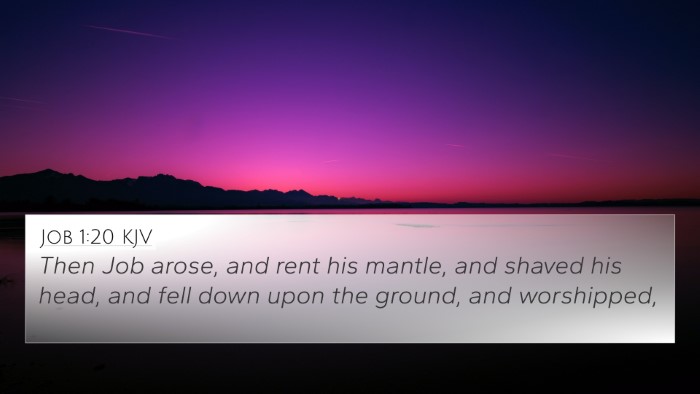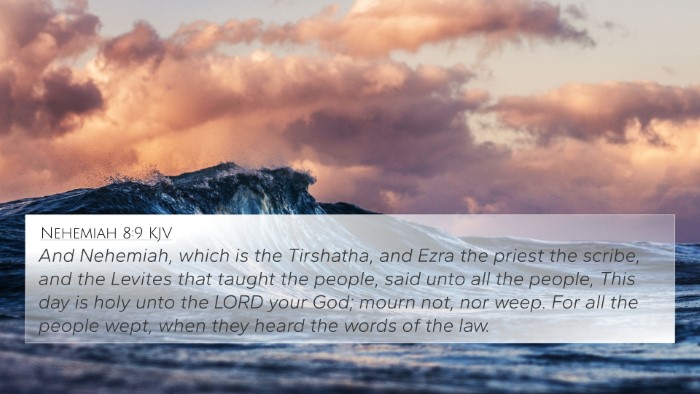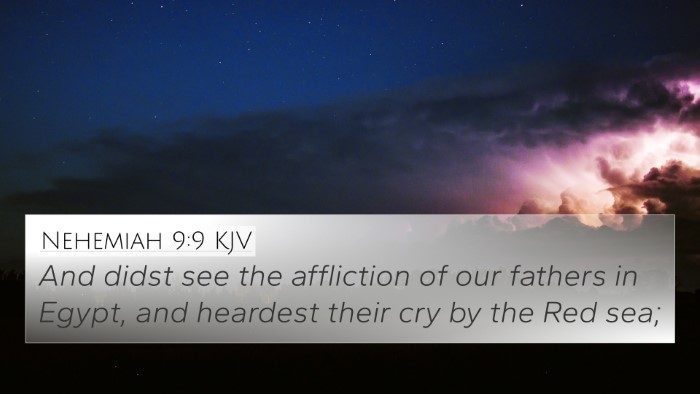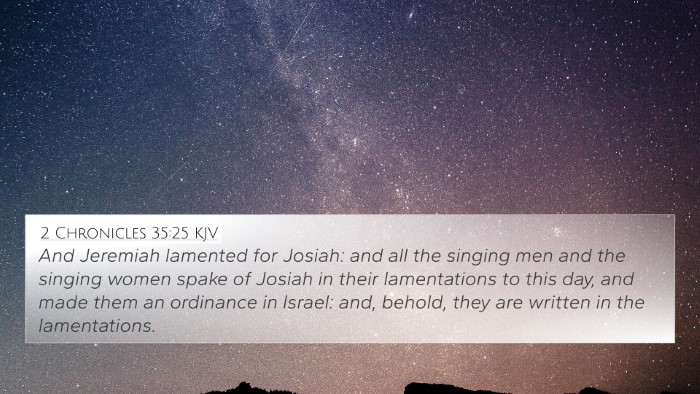Understanding Isaiah 22:12
Isaiah 22:12 (KJV): "And in that day did the Lord God of hosts call to weeping, and to mourning, and to baldness, and to girding with sackcloth."
This verse appears during a prophetic lament concerning the people of Jerusalem's disregard for God's warnings and impending judgments. It serves as a call to repent and recognize the seriousness of their situation.
Commentary Insights
Matthew Henry's Commentary: Henry emphasizes that this verse captures a moment of divine calling to the people. God's summons to weeping and mourning highlights His desire for His people to experience remorse for their sins. The cultural symbols of baldness and sackcloth serve as outward expressions of inward grief. Thus, it reflects God's profound concern for His covenant people and their response to His impending judgment.
Albert Barnes' Notes: Barnes points out that the call to "weeping" can be seen as an invitation to identify the gravity of their sins and seek reparation. The expression of baldness (a sign of mourning) and wearing sackcloth (indicative of repentance) signifies the seriousness of turning back to God. Barnes also notes that God’s desire for repentance is not simply punitive but seeks reconciliation between Him and His people.
Adam Clarke's Commentary: Clarke elaborates on the symbolism of sackcloth and baldness within the context of the ancient Hebrew culture. He argues that such actions are increasingly relevant as God's calls for holiness persist. Clarke asserts that these physical expressions of grief are meant to underscore the emotional reality of spiritual estrangement and the need for restoration through sincere repentance.
Thematic Connections to Other Bible Verses
Isaiah 22:12 has several connections with other scriptures that illustrate similar themes of mourning, repentance, and divine calling. Here are 10 Bible verse cross-references that relate to this verse:
- Joel 2:12-13: "Therefore also now, saith the Lord, turn ye even to me with all your heart, and with fasting, and with weeping, and with mourning."
- 2 Chronicles 7:14: "If my people, which are called by my name, shall humble themselves, and pray, and seek my face, and turn from their wicked ways; then will I hear from heaven, and will forgive their sin, and will heal their land."
- Matthew 5:4: "Blessed are they that mourn: for they shall be comforted."
- James 4:9: "Be afflicted, and mourn, and weep: let your laughter be turned to mourning, and your joy to heaviness."
- Isaiah 61:3: "To appoint unto them that mourn in Zion, to give unto them beauty for ashes, the oil of joy for mourning, the garment of praise for the spirit of heaviness."
- Lamentations 2:19: "Arise, cry out in the night: in the beginning of the watches pour out thine heart like water before the face of the Lord: lift up thy hands toward him for the life of thy young children."
- 2 Kings 22:11: "And it came to pass, when the king had heard the words of the book of the law, that he rent his clothes."
- Matthew 11:30: "For my yoke is easy, and my burden is light."
- Revelation 3:19: "As many as I love, I rebuke and chasten: be zealous therefore, and repent."
- Psalm 51:17: "The sacrifices of God are a broken spirit: a broken and a contrite heart, O God, thou wilt not despise."
Links Between Prophetic Calls and Responses
The call to weeping and mourning emphasizes the gravity of sin and the urgent need for a sincere response from God's people. Throughout scripture, God consistently calls for repentance, showing a thematic connection with Isaiah 22:12.
This verse parallels various Biblical texts that underline the importance of mourning for sin and the restoration that follows true repentance. The thematic ties woven throughout the Old and New Testament illustrate how God's instruction remains relevant, as seen through parallels in Jesus’ teachings and the epistles of Paul.
Conclusion
The message of Isaiah 22:12 transcends time, calling individuals and communities alike to engage in heartfelt repentance and recognition of spiritual oversight. The various commentaries reflect a shared understanding that God's longing for His people to turn back to Him is underscored through both mourning and joy. This verse, nestled within the larger narrative of scripture, invites believers to engage in a profound study of inter-Biblical dialogue, enhancing understanding and encouraging deeper relational engagement with God through the heritage of faith.
